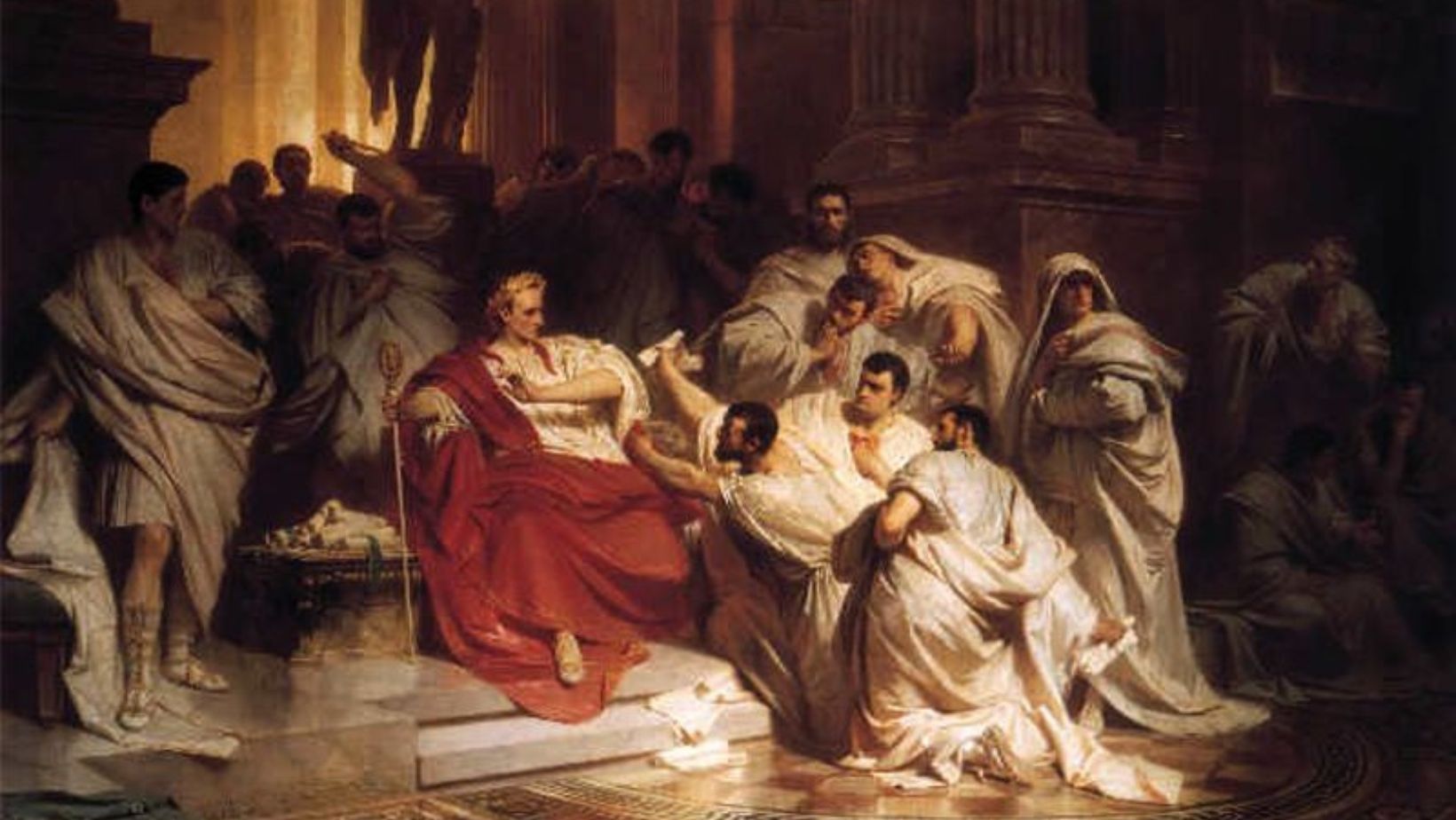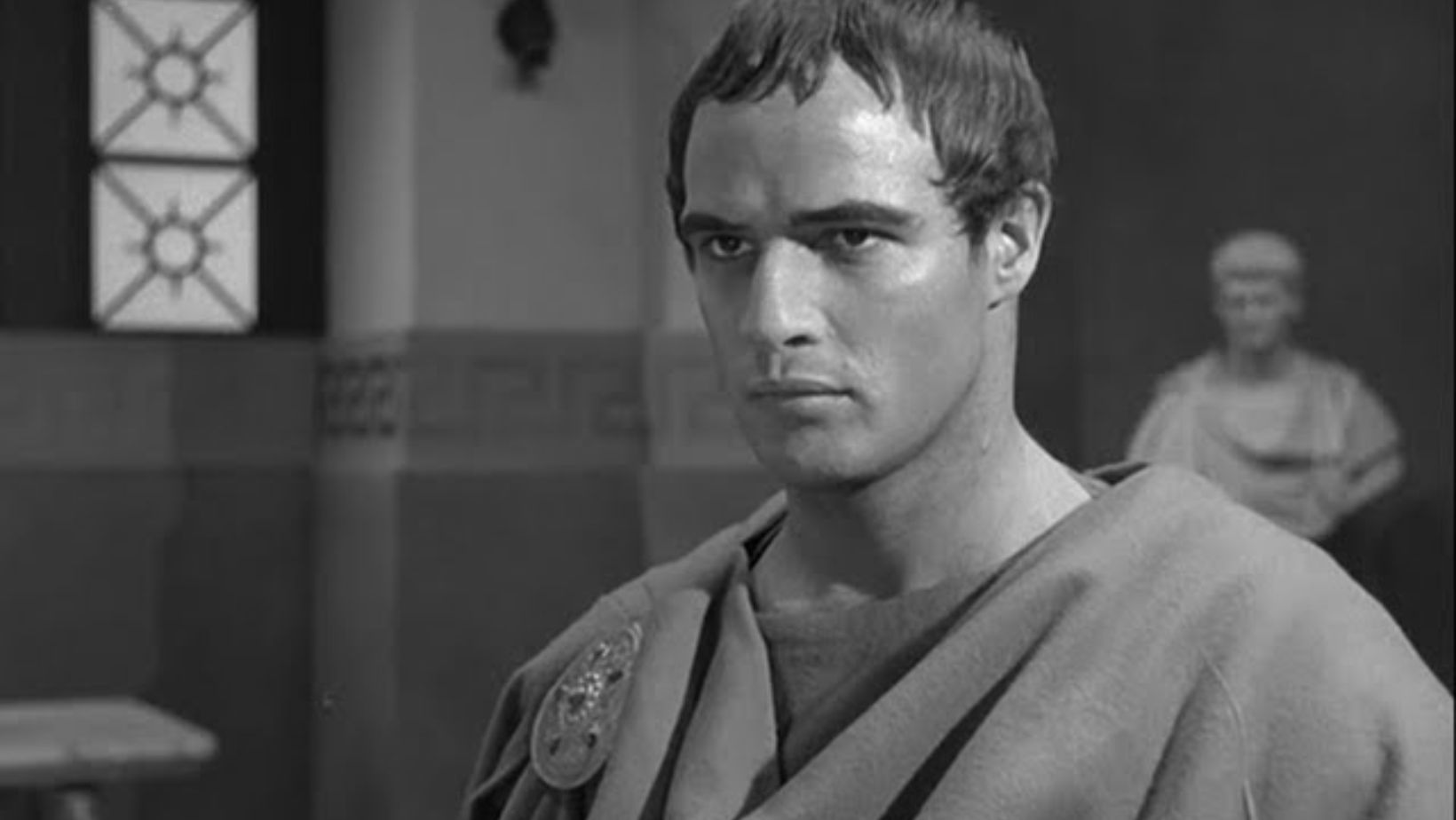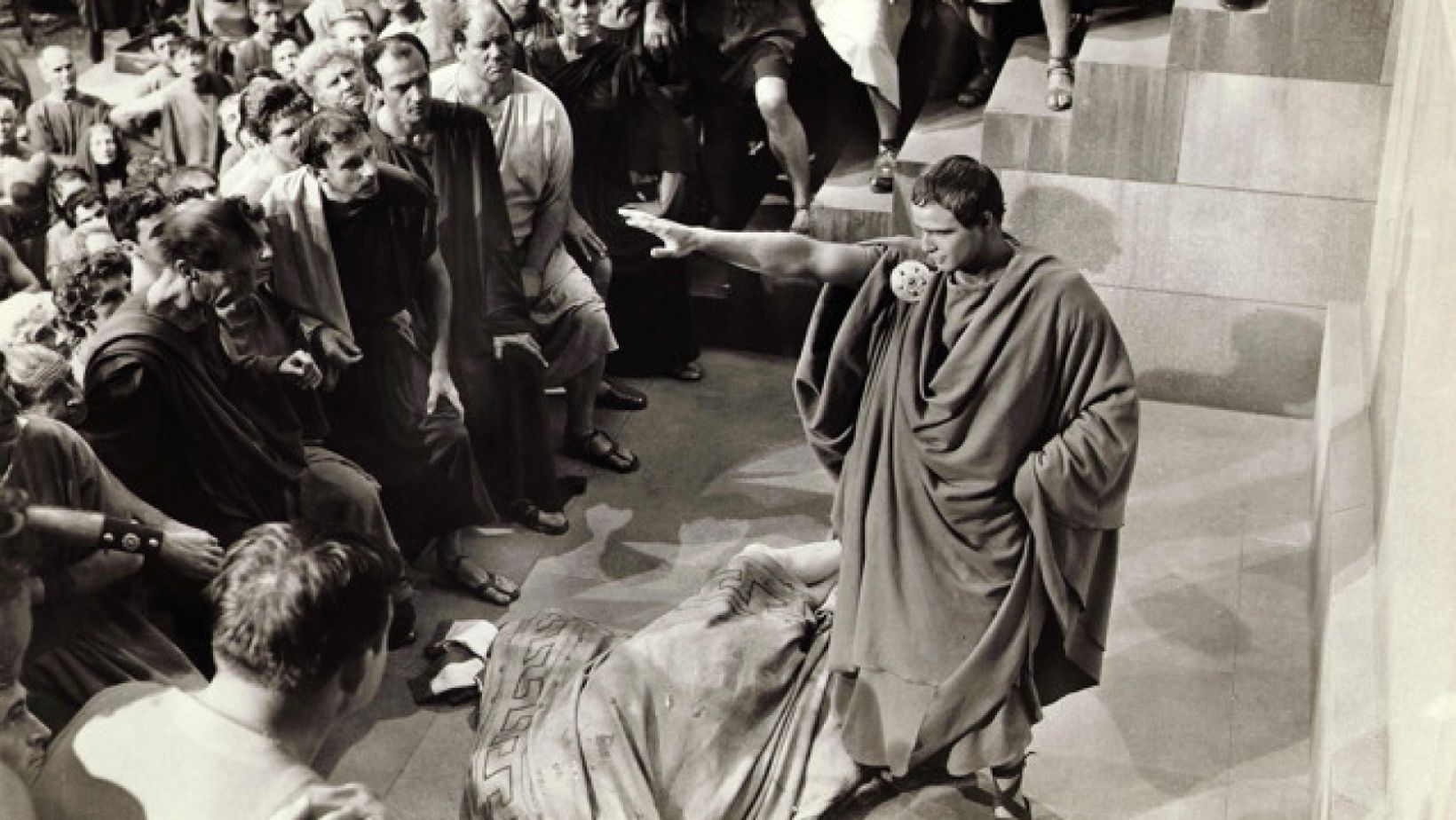Have you ever wondered how a few well-chosen words can change the course of history? In Shakespeare’s play Julius Caesar, Mark Antony’s Speeches in Julius Caesar do just that. Antony, a loyal friend of Caesar, uses his oratorical skills to sway the Roman public opinion against the conspirators who assassinated Caesar. His powerful words, laced with emotion and rhetorical devices, showcase the immense impact of persuasive speech.
As we explore the depths of Antony’s speeches, we’ll uncover the secrets behind his ability to captivate and influence his audience. Get inspired by the timeless art of persuasion and the enduring legacy of Mark Antony’s speeches.
Table Of Contents:
- Mark Antony’s Speeches in Shakespeare’s Julius Caesar
- Antony’s Funeral Oration: Mark Antony’s Speeches
- Antony’s Use of Irony and Sarcasm: Mark Antony’s Speeches
- Emotional Appeal in Antony’s Speeches: Mark Antony’s Speeches
- The Power of Rhetoric in Antony’s Speeches: Mark Antony’s Speeches
- The Legacy of Mark Antony’s Speeches: Mark Antony’s Speeches
- Conclusion: Mark Antony’s Speeches
Mark Antony’s Speeches in Shakespeare’s Julius Caesar
In Shakespeare’s play Julius Caesar, Mark Antony is a central character who delivers some of the most famous speeches in all of literature. His words have the power to sway the masses and change the course of history.
Overview of Mark Antony’s Role
Mark Antony is Caesar’s loyal friend and confidant. After Caesar’s assassination, Antony uses his rhetorical skills to turn the Roman republic against the conspirators who killed him. He’s a master of persuasion, using every trick in the book to win over the Roman citizens and the crowd.
Significance of Antony’s Speeches
Antony’s speeches, especially his funeral oration, are a turning point in the play. They showcase his incredible ability to manipulate language and emotions. Through his words, Antony transforms the conspirators from honored patriots to villains, and the Roman citizens from a passive audience to an angry mob.
Analysis of Rhetorical Devices: Mark Antony’s Speeches
Shakespeare packs Antony’s speeches with powerful rhetorical devices. There’s irony, as Antony repeatedly calls Brutus “an honorable man” while subtly undermining his character. Emotional appeals tug at the heartstrings of the crowd. Repetition hammers home key ideas. It’s a masterclass in the art of persuasion.
Antony’s Funeral Oration: Mark Antony’s Speeches
Caesar’s funeral oration is the centerpiece of Antony’s performance. It’s where he really lets loose, using every trick up his sleeve to win over the crowd and turn them against Brutus and the other conspirators. Cassius’ dagger fell into his mighty heart, and great Caesar fell. The sudden flood of bloody treason and bloody sight but the traitor lived.
Context of the Speech
Picture this: Caesar’s body has just been brutally murdered, and Brutus has been stabbed to death by his own good friends, sweet friends, and allies. The conspirators have taken over, and Brutus has given a speech justifying their actions. Now it’s Antony’s turn. He’s got to be careful – he can’t openly condemn the conspirators, or he’ll be shut down. So, he takes a different approach to the poor soul.
Key Moments in the Oration
Antony agrees with Brutus, calling him “an honorable man.” But then he slowly chips away at that idea, using sweet Caesar’s wounds and bloody cloak as powerful visual aids. He reads Caesar’s will, reminding the crowd of all the good things Caesar loved and has done for them. By the end, the crowd is putty in his hands, ready to riot against the conspirators.
Impact on the Plebeians
The impact of Antony’s words on the plebeian fourth plebeians, the common people of Rome, is immediate and dramatic. They go from believing Brutus’s story to being enraged at him and the other conspirators. Antony’s fourth plebeians have completely flipped the script, painting Caesar’s death as the victim and his killers as the villains in the fourth plebeians and plebeian Brutus. The crowd is whipped into a frenzy, calling for revenge and rioting in the streets.
Antony’s Use of Irony and Sarcasm: Mark Antony’s Speeches
One of the key weapons in Antony’s rhetorical arsenal is irony. He uses it effectively in his speeches, especially when talking about Brutus and the other conspirators.
Examples of Irony
The most famous example is when Antony servant keeps calling Brutus “an honorable men,” even as he’s tearing down his character and motives. It’s a brilliant bit of verbal judo, using Brutus’s own words against him. Antony also uses irony when he talks about noble Caesar’s ambition and when he reads his will, subtly suggesting that maybe dearly Caesar loved wasn’t so bad after all.
Sarcasm as a Persuasive Tool
Antony’s sarcasm is biting and effective. When he says things like, “I speak not to disprove what Brutus spoke,” the audience knows he means the exact opposite. This sarcastic tone allows him to criticize the conspirators without openly condemning them, a necessity given the delicate political situation.
Contrast with Brutus’ Speech
The contrast between Antony’s speech and Caesar’s and Brutus’ earlier oration is stark. While Brutus is logical and rational, Antony is emotional and manipulative. Brutus appeals to the crowd’s sense of honor and patriotism; Antony addresses straight for their hearts. It’s a classic case of logos vs. pathos, and in this case, pathos wins out.
Emotional Appeal in Antony’s Speeches: Mark Antony’s Speeches
Pathos, or emotional appeal, is perhaps the most important aspect of Antony’s speeches. He knows that to win over the crowd, he must make them feel something.
Pathos in Antony’s Words: Mark Antony’s Speeches
Antony’s language is carefully chosen to evoke strong emotions in his listeners. He talks about Caesar’s love for the people, generosity, and humility. He describes hearing Caesar’s wounds in graphic detail, making the assassination feel personal and visceral. Every word is calculated to make the crowd feel grief, anger, and a thirst for revenge and kiss dead Caesar’s wounds.
Manipulation of the Crowd’s Emotions
Antony is a master at playing the crowd’s emotions like a fiddle. He starts off slow, gradually building up the pathos until the crowd is in a frenzy. He uses rhetorical questions to get them thinking, then provides the answers he wants them to reach. By the end of his speech praising Caesar, he has them eating out of his hand, ready to do whatever he suggests.
Building a Connection with the Audience
Part of Antony’s emotional appeal comes from his connection with his audience. He presents himself as one of them, a plain, blunt man, a nobler man who loved Caesar as a friend. He calls them “friends” and “Romans,” creating a sense of camaraderie and shared identity. This makes his words feel more authentic and trustworthy, even as he manipulates them.
The Power of Rhetoric in Antony’s Speeches: Mark Antony’s Speeches
At the end of the day, Antony’s incredible rhetorical skill allows him to sway the crowd so effectively. He uses every trick in the book, from irony and pathos to repetition and rhetorical questions.
Antony’s Skill as an Orator
Antony is simply a master orator. He understands his audience and knows exactly which buttons to push to get his desired reaction. He can take a hostile crowd and turn them to his side, all while operating within the constraints of the political situation. It’s a tour de force of public speaking.
Use of Repetition and Rhetorical Questions
Two of Antony’s favorite devices are repetition and rhetorical questions. He repeats key phrases like “noble Brutus is an honorable man” and “But Antony Plebeians Brutus says he was ambitious” to drive his points home. His rhetorical questions engage the audience, making them active participants in his argument.
Adapting to the Audience
Perhaps Antony’s greatest strength as an orator is adapting to his audience. He knows the Roman citizens don’t want to hear a lofty, intellectual argument. They respond to emotion, to spectacle, to a sense of personal connection. So that’s what he gives them. He meets them where they are and speaks to them in a language they understand. Mark Antony’s oration is exceptional.
The Legacy of Mark Antony’s Speeches: Mark Antony’s Speeches
The impact of Mark Antony’s speeches extends far beyond the confines of William Shakespeare’s play. They’ve become cultural touchstones, influencing everything from literature to politics to popular culture. For reference follow direct links and animated summary on the internet.
Influence on Later Works: Mark Antony’s Speeches
Antony’s funeral oration, in particular, has been endlessly studied, analyzed, and imitated. It’s seen as a prime example of the power of rhetoric and the art of persuasion. Writers, politicians, and speakers have borrowed from Antony’s playbook for centuries, using his techniques to sway audiences and win debates.
Adaptations in Film and Theater
Marlon Brando’s portrayal of Antony in the 1953 film adaptation of Julius Caesar with his sacred blood is considered one of the great Shakespearean performances. More recently, productions like the Royal Shakespeare Company’s African Julius Caesar have reimagined the play for modern audiences, but Antony’s speeches remain the centerpiece.
Relevance in Modern Public Speaking
Antony’s techniques – emotional appeal, irony, repetition, and adapting to one’s audience – are just as relevant for public speakers today as they were in Shakespeare’s time. In an age where public discourse is often reduced to soundbites and tweets, Antony’s speeches remind us of the power of well-crafted, persuasive language to change hearts and minds. If you need a
Key Takeaway: Mark Antony’s Speeches
Mark Antony’s speeches in Julius Caesar showcase his mastery of persuasion. He us irony, pathos, and repetition to sway the Roman senate crowd against the conspirators. His funeral oration turns public opinion from support for Brutus to a call for revenge.
Conclusion: Mark Antony’s Speeches
Mark Antony’s speeches in Julius Caesar demonstrate the incredible power of language and rhetoric to shape public opinion and influence the course of events. Through his masterful use of irony, sarcasm, emotional appeals, and repetition, Antony transforms the Roman crowd from supporters of Brutus to an angry mob seeking revenge against Caesar’s assassins.
Antony’s speeches are a timeless reminder of the importance of persuasive communication skills. Whether in politics, business, or personal life, the ability to connect with an audience, adapt to their needs, and use language to inspire action is an invaluable asset. By studying Antony’s techniques, we can all learn to harness the power of words to make a lasting impact on the world around us.

